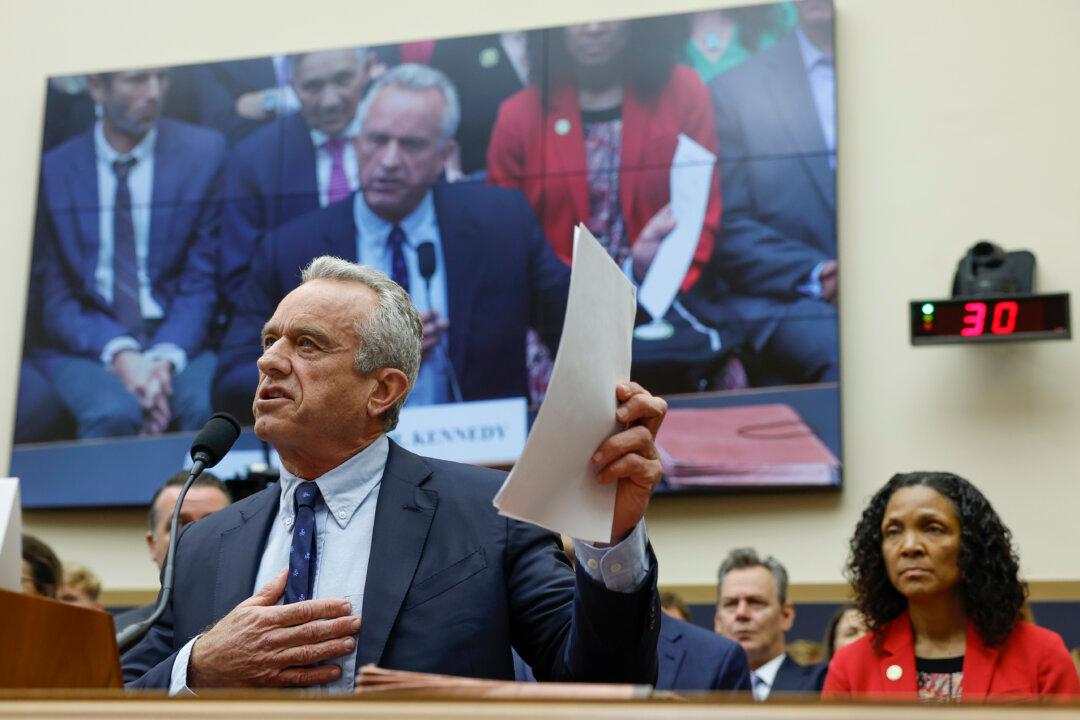House Republicans saw testimony at a congressional hearing on Thursday as evidence that the federal government has engaged in political censorship. Meanwhile, Democrats at the hearing pushed back on the censorship allegations and focused much of their criticism on one of the four witnesses who testified—Democratic 2024 presidential candidate Robert F. Kennedy Jr.
Mr. Kennedy testified, alongside journalist Emma Jo-Morris, about their experience of having their content suppressed on different social media platforms at the encouragement of federal government actors in an alleged pattern of censorship by proxy. Louisiana Special Assistant Attorney General D. John Sauer, who has been involved in suing federal government offices over their alleged censorship-by-proxy practices, also testified. Maya Wiley, president of The Leadership Conference on Civil and Human Rights, also testified at the Thursday hearing.





